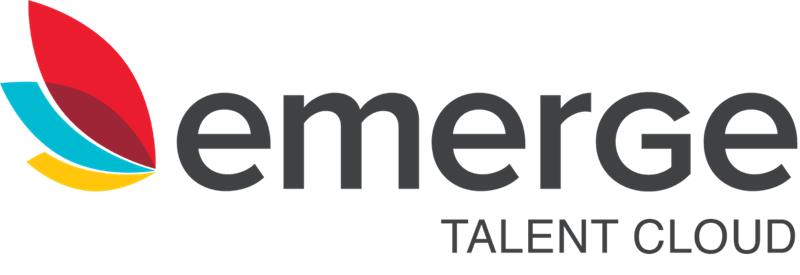In the evolving landscape of the tech industry, remote IT recruitment has become an increasingly popular and necessary strategy for companies looking to attract top talent from around the globe.
As organizations expand their search beyond local talent pools, they face unique challenges but also unlock remarkable opportunities. This blog post explores the intricacies of remote IT recruitment, offering insights and strategies to help companies effectively navigate this complex process.
The Rise of Remote IT Recruitment
The landscape of work has undergone significant transformations in recent years, particularly within the information technology sector. Accelerated by global events such as the COVID-19 pandemic, the shift towards remote work has fundamentally altered the way companies conduct their hiring processes. Tech companies have been at the forefront of this change, increasingly turning to remote recruitment strategies to address the persistent shortage of tech talent. By adopting remote recruitment, these companies can tap into a global talent pool, thus broadening their search beyond local candidates.
Remote recruitment not only enables companies to find the best candidates regardless of their geographic location but also promotes diversity and inclusion. This approach removes geographical barriers, making it possible for businesses to benefit from a wide range of perspectives, which is particularly valuable in the tech industry where innovation is key. Furthermore, it allows for a more inclusive work environment, where diverse skills and experiences can thrive, contributing to more robust problem-solving capabilities and creative solutions.
The benefits of remote IT recruitment are manifold. Companies can reduce costs associated with physical office spaces and the logistics of in-person interviewing. Additionally, they can leverage advanced technology to streamline the recruitment process, from digital interviews to virtual onboarding. This efficiency not only speeds up the hiring process but also enhances the candidate experience, making companies more attractive to top-tier talent.
Challenges of Remote IT Recruitment
Despite the apparent advantages, remote IT recruitment presents several challenges that companies must navigate to successfully integrate remote workers into their teams. These challenges include ensuring a cultural fit, overcoming communication barriers, and conducting effective technical assessments.
One of the primary concerns when hiring remotely is ensuring that the new hires fit well with the company’s culture. Cultural fit is crucial as it significantly impacts employee engagement, satisfaction, and retention. However, assessing a candidate’s alignment with the company’s values and culture through remote interactions can be complex. Without the nuances of face-to-face communication, it is challenging to gauge a candidate’s interpersonal skills and their potential to collaborate effectively with existing teams.
To overcome this, companies need to develop clear and comprehensive descriptions of their culture and work environment, which should be communicated effectively during the recruitment process. Virtual reality tours of offices, online meet-and-greets with potential team members, and detailed discussions about company values and expectations can help bridge this gap. Additionally, regular follow-ups and feedback sessions after hiring can ensure smooth integration and cultural alignment.
Effective communication is the cornerstone of any successful team, and this becomes even more critical in a remote setting. Remote recruitment and work arrangements necessitate reliance on digital communication tools, which can sometimes lead to misunderstandings or a sense of isolation among team members. The absence of non-verbal cues, which are often essential for understanding context and emotions, can further complicate communication.
To address these issues, organizations must invest in high-quality communication technologies and train their teams on best practices for digital communication. Regular video calls, team meetings, and collaborative projects can help maintain clarity and continuity. It is also essential to foster an environment where feedback is encouraged and valued, ensuring that all team members feel connected and engaged despite the physical distance.
Conducting technical assessments remotely poses its own set of challenges. Ensuring the integrity and effectiveness of these assessments is critical, as they are a fundamental part of the recruitment process for IT roles. Traditional in-person coding tests or technical interviews need to be adapted for a remote format without compromising on the quality of the assessment.
Innovative solutions such as live coding platforms, virtual whiteboards, and simulation-based testing can be employed to accurately evaluate a candidate’s technical skills. These tools not only facilitate a fair assessment process but also mimic real-life scenarios that the candidate might face in their role. Furthermore, such technologies can enhance the candidate’s experience by showcasing the company’s commitment to innovation and cutting-edge practices.
The evolution of remote IT recruitment is an ongoing process, influenced by technological advancements and changing global dynamics. While there are challenges to overcome, the potential benefits make it an enticing strategy for companies looking to attract and retain the best tech talent. By effectively addressing the hurdles of cultural fit, communication, and technical assessments, businesses can build resilient, diverse, and innovative teams that are well-equipped to navigate the complexities of the modern tech landscape. This approach not only enhances the company’s ability to compete but also contributes to a more inclusive and dynamic global workforce.
Opportunities in Remote IT Recruitment
The paradigm shift towards remote recruitment in the IT sector opens up a multitude of opportunities for companies to innovate, expand, and refine their workforce strategies. These opportunities not only aid in addressing the tech talent shortage but also bring substantial benefits in terms of cost, diversity, and access to a broader talent pool.
One of the most significant advantages of remote IT recruitment is the ability to tap into a global talent pool. This access breaks down the traditional barriers of geography, allowing companies to reach out to the best candidates, regardless of where they are located. With a broader selection of candidates, companies are not limited to the skill sets available in their immediate geographic vicinity. This global outreach is particularly beneficial in the tech industry, where specialized skills can sometimes be scarce in local markets.
Remote recruitment processes are inherently more cost-efficient than traditional, on-site hiring practices. Companies can save on various fronts, including reduced expenses related to travel, lodging for candidates, and leasing physical spaces for interviews.
Moreover, remote work setups can decrease the need for large office spaces, further cutting down overhead costs. These savings can then be redirected into other areas such as research and development, employee training, or enhancing employee benefits, making the company more competitive and appealing to prospective employees.
Remote recruitment naturally enhances workforce diversity. By hiring from a global pool, companies benefit from a wide array of cultural perspectives, which can lead to more innovative solutions and a more inclusive company culture. Diversity has been shown to improve problem-solving and decision-making within teams, as different viewpoints lead to more thorough analysis and creativity. Embracing diversity not only strengthens a company’s market position but also its internal community, fostering a more dynamic and adaptable organization.
Best Practices for Remote IT Recruitment
To maximize the effectiveness of remote IT recruitment, companies should consider adopting certain best practices. These practices help streamline the recruitment process, ensuring that it remains efficient, fair, and capable of attracting the top talent in the industry.
The successful implementation of remote recruitment heavily relies on the use of the right tools. This includes applicant tracking systems (ATS), video interviewing platforms, and digital assessment tools. An ATS can help manage candidate data and streamline the application process, while video platforms ensure that interviews are conducted efficiently and personally, despite the physical distance. Additionally, digital tools for skill assessments are crucial for evaluating technical abilities in a remote setup.
While technical skills are crucial in IT recruitment, soft skills are equally important, especially in a remote work environment. Skills such as communication, teamwork, adaptability, and problem-solving are essential for remote workers. During the recruitment process, it’s important to assess these skills through behavioral interviews and scenarios that simulate real work challenges. This focus helps ensure that new hires can effectively collaborate and thrive in a remote setting.
Consistency is key in any recruitment process, more so in remote recruitment. Establishing a standardized process ensures that all candidates are assessed fairly and systematically. This standardization not only simplifies the recruitment process for HR departments but also enhances the candidate experience, portraying the company as organized and professional. A clear and consistent process reduces biases and errors, leading to better hiring decisions.
The field of remote recruitment is continually evolving, influenced by technological advancements and changes in the work environment. Companies should adopt a mindset of continuous improvement, regularly evaluating and refining their recruitment strategies. This can involve staying updated with the latest recruitment technologies, gathering feedback from recent hires, and training recruiters to deal with the unique challenges of remote hiring. Continuous improvement helps companies remain competitive and responsive to changes in the job market and technology landscape.
Remote IT recruitment offers a wealth of opportunities for companies willing to adapt to and embrace new ways of working. By addressing the challenges and leveraging the opportunities through best practices, companies can build strong, diverse, and resilient teams that drive business success. The key to effective remote recruitment lies in a thoughtful, deliberate approach that balances technological tools with a deep understanding of human-centric skills and processes. With these strategies in place, the future of IT recruitment looks promising, scalable, and incredibly dynamic.
Conclusion
Remote IT recruitment stands out as a transformative strategy for building a resilient and diverse workforce, essential for fostering innovation and growth within the tech sector. By navigating through the challenges and maximizing the opportunities it offers, companies can significantly enhance their appeal as top-tier employers in a competitive global marketplace.
The shift towards remote work, accelerated by recent global events, has already shown us the benefits and challenges of such an arrangement. The ability to tap into a global talent pool has opened up unprecedented possibilities for finding rare skills and diverse perspectives that drive innovation. Meanwhile, the cost efficiencies and broadened access to talent have democratized the playing field, allowing startups and established companies alike to compete for top talent.
However, remote IT recruitment requires more than just an open mindset towards non-traditional work arrangements; it demands a strategic approach to overcome obstacles such as cultural integration, communication barriers, and the effective assessment of technical and soft skills. Companies must leverage advanced recruitment technologies and establish standardized processes to ensure fair and efficient hiring practices. Furthermore, focusing on continuous improvement and adapting to emerging technologies and trends will be crucial in maintaining competitiveness and relevance in the evolving job market.
As the workplace continues to evolve, so too must the strategies and tools used in remote recruitment. Organizations that are quick to adapt and committed to refining their approaches will find themselves well-equipped to attract and retain the best IT talent from around the world. This proactive adaptation not only ensures access to a broader array of candidates but also positions these companies as leaders in innovation and as pioneers in the future of work.
Embracing remote IT recruitment is not just a temporary adjustment but a long-term investment in the future of technology and business. It represents a forward-thinking approach to work that values diversity, flexibility, and innovation. In the end, the success of remote IT recruitment will hinge on how well companies can integrate these new practices into their core operations and company culture, making the most of the vast opportunities this method presents.
Contact us today to start building a more dynamic, innovative, and resilient workforce.





